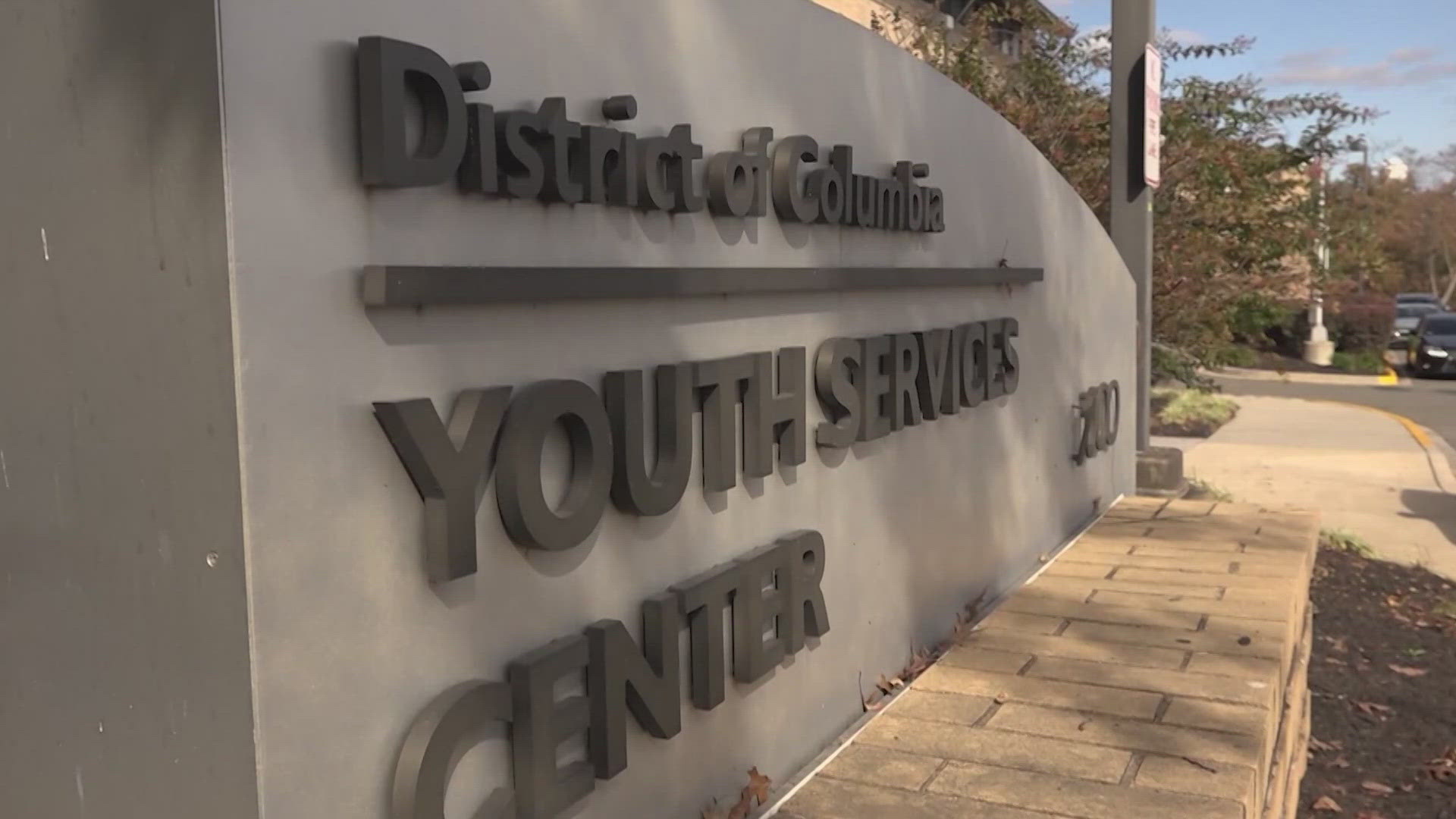WASHINGTON — After both the DC Auditor and Attorney General flagged serious problems at DC's Department of Youth Rehabilitation Services, the Council is hosting an oversight roundtable Monday morning.
The roundtable will be led by Ward 5 Councilmember Zachary Parker, who was appointed to chair the Committee of the Whole's new Subcommittee on Libraries and Youth Affairs.
The Council disbanded the Committee on Recreation, Libraries and Youth Affairs after the bribery charges against Councilmember Trayon White were announced.
Monday's hearing will feature government witnesses, with the following listed priorities:
- Overall agency structure, staffing, budgeting, and policies
- Case management, especially preparations for commitment and reentry
- Quality assurance, especially fidelity to screening tools and/or needs assessments;
- Staff onboarding, training, and coaching;
- Services provided to youth in the care of DYRS at the Youth Services Center and New
Beginnings; - Oversight of community-based and out-of-state placements; and
- Challenges coordinating or interfacing with other agencies, including the Department
of Behavioral Health, the D.C. Child and Family Services Agency, and the Family
Court Social Services Division of the District of Columbia Courts
It begins at 10 a.m. at the Wilson Building and online.
This comes after the Council voted last week to advance a bill Attorney General Brian Schwalb proposed to reform DYRS, called Recidivism Reduction, Oversight, and Accountability for DYRS Act or ROAD Act.
It would create a permanent oversight committee for the agency, speed up the timeline for treatment plans, and institute other reforms.
“Lack of planning, lack of services, and lack of urgency. If we loved all our kids the way we loved our own children, we would want the very best for them," Georgetown Juvenile Justice Policy Director Eduardo Ferrer said at a September hearing on the ROAD Act. "We would be acting quicker. We would be putting in place the needed services.”
Under the ROAD Act, DYRS would be required to provide committed youth with a treatment plan within 30 days. Under current D.C. law, the agency has 90 days to provide the plan.
DYRS Director Sam Abed recognized that DYRS is not meeting the 30-day window, testifying that it takes an average of 62 days. He pushed back on the timelines in the legislation and on the bill overall, telling the D.C. Council, "It creates unreasonable requirements that call on DYRS to take on the role and responsibilities of other system partners."
Schwalb has testified that DYRS has failed to provide some youth with a treatment plans within the 90 days that the D.C. law stipulates.
"Nearly 50% of youth committed to DYRS, 47.6 according to the report, are subsequently convicted of committing an additional criminal offense either under DYRS care or within a few years of their release of commitment," Schwalb added.
The Attorney General's Office says Schwalb's plan would "strengthen the D.C. Superior Court's authority to intervene when it becomes clear that DYRS is not providing appropriate services and placements for young people in its care. "
In May, Mayor Muriel Bowser told WUSA9 that she was not interested in reforming the agency under her purview. "DYRS is a fantastic agency and we need to focus on making sure that they have the people that they need, and if the young people need to be in secure detention, are actually in secure detention," she said.
Monday's hearing is part of a series of oversight roundtables Councilmember Parker pledged to hold when he assumed leadership of the new subcommittee.
After Monday's roundtable with government witnesses, the public will have an opportunity to respond at a hearing on Friday.

